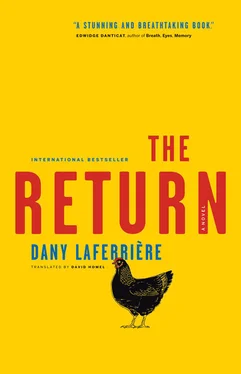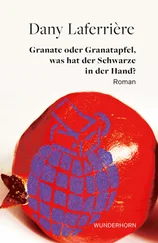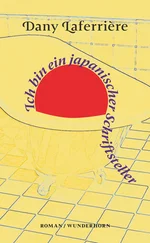I ask Garibaldi (I call him that because he worships Garibaldi) why he doesn’t go back to his country. Mine, I say, is so devastated that it hurts just thinking about seeing it again. But you, just to go back to the stadium to watch Juventus play. He takes the time to go and shut off the television then returns to sit near me. He looks me in the eye and tells me he goes back to Italy every night.
Garibaldi invites me to his place one evening. We go down to the basement. The same ritual. I have to drink his homemade wine. I feel he has something important to tell me. I wait. He gets up, wipes the dust off his books, then produces a signed portrait of D’Annunzio that the writer dedicated to his father. I’m afraid he’s going to entrust me with some scandalous confession. But he just needed to tell me that he’s always hated Juventus, and that his team is Torino FC. Since no one knows that team here and everyone knows Juventus, he says Juventus thinking of Torino. That’s the tragedy of his life. Not a day goes by when he doesn’t think of that betrayal. If one day he ever returns to Italy he isn’t sure he’ll be able to look his old friends in the eye.
I bring back to the country
without a farewell ceremony
these gods who accompanied me
on this long journey
and kept me from losing my mind.
If you don’t know voodoo,
voodoo knows you.
The faces I once loved disappear
with the days of our burned memory.
The sheer fact of not recognizing
even those who were close to us.
The grass grows in, after the fire,
to camouflage all trace of the disaster.
In fact, the real opposition is not
between countries, no matter how different they are,
but between those who have had to learn
to live at other latitudes
(even in inferior conditions)
and those who have never had to face
a culture other than their own.
Only a journey without a return ticket
can save us from family, blood
and small-town thinking.
Those who have never left their village
live unchanging lives
that can prove, with time,
dangerous for their personality.
For three-quarters of the people on this planet
only one type of travel is possible
and that’s to find themselves without papers
in a country whose language and customs
they know nothing of.
There’s no sense accusing them
of wanting to change
other people’s lives
when they have
no control
over their own.
If we really want to leave we have to forget
the very idea of the suitcase.
Things don’t belong to us.
We accumulate them out of the simple need for comfort.
A comfort we have to question
before walking out the door.
We have to understand that the minimum level of comfort
needed to live here in winter
is a dream come true back there.
When I came here, I had one small suitcase into which I could put everything. What I possess today is spread out through my room. I wonder what happened to that first suitcase. Did I forget it in a closet during a quick move? In those days I would slip out, leaving the last month’s rent on the table and a girl sleeping in the bed.
Garibaldi just went by with his grandson, who comes to visit him every Friday after school. He makes him pasta and talks away to him in dialect. The boy is only ten years old, but when you ask him who he hates most of all in the world, he tells you Gianni Agnelli, the owner of Juventus. His son doesn’t want to hear anything about Italy; he likes hockey because it makes him feel closer to the country where he was born. Garibaldi will take revenge on his grandson who will inherit his bottles of bad homemade wine and the yellowed portrait of D’Annunzio.
I fear that an event no matter how great
will never shake
a man from his habits.
The decision is made long before
we actually become aware of it
and for a reason that will always escape us.
The moment of departure has been written
in us so long ago that by the time it comes
it always seems a little banal.
As soon as I moved into a new apartment
I would place my books on the table.
All of them read and reread.
I wouldn’t buy a book unless
the desire to read it was stronger
than the hunger in my belly.
That’s still the case for a lot of people.
When our circumstances change
we think it’s the same
for everyone else.
I know people who constantly
have to choose between eating and reading.
I consume as much meat here
in one winter
as a poor person in Haiti eats
in a lifetime.
I moved very quickly
from forced vegetarian to obligated carnivore.
In my life before, food
was a daily preoccupation.
Everything centered on my stomach.
Once I got something to eat everything was settled.
That’s impossible to understand
if you’ve never experienced it.
Two years ago, after a violent hurricane struck Haiti, I received a letter from a young student who urged me to inform all people of good will who were thinking of sending food to the victims that it would be better if every bag of rice was accompanied by a case of books because, he wrote, “We do not eat to live, but to be able to read.”
One day, I bought a book
without really needing to.
It sat on the little kitchen table
unopened for three months
among the onions and carrots.
Today I realize that a good half
of my library remains unread.
I’m waiting to be in a sanatorium before I read Buddenbrooks by the serious Thomas Mann, or track The Leopard by Giuseppe Tomasi di Lampedusa. Why do we keep books we’ll never read? For The Leopard, the author’s name justified the expense. I forget what keeps me from reading Thomas Mann’s novel.
I will leave with a little suitcase.
Like the one I had when I came here.
Nearly empty.
Not a single book.
Not even mine.
Stay only one short night in Port-au-Prince
before heading to Petit-Goâve to
see that house again not far
from my grandfather’s old distillery.
Later I’ll cross the rusty old bridge
to visit my grandmother in the cemetery.
I’d just as soon spend the rest of my time here
chatting about everything and nothing
with people who have never
opened a book in their lives.
But sooner or later that essential moment will come
when I confuse the novels I read
with the ones I wrote.
Everything moves on this planet.
Seen from the sky its southern flank
is in constant motion.
Entire populations travel northward
in search of life.
When everyone gets there
we’ll all tip over the edge.
Sometimes a phone call in the middle of the night
turns everything upside down in an instant.
We are lost in restless movement.
It’s always easier to change places
than change lives.
Into a suitcase I throw two or three pairs of jeans, three shirts, two pairs of socks, some underwear, a tube of toothpaste, two toothbrushes, a box of aspirin and my passport. I drink a final glass of water in the middle of the kitchen before switching off the lights for the last time.
My head lowered into the frigid wind, I go to the corner. I’ve walked this street for thirty years. I know every smell (the Tonkinese soup with the strips of rare beef from the little Vietnamese restaurant), every color (the graffiti on the walls of the old hotel with rooms by the hour), every taste (the fruit market where I buy apples in winter and mangos in summer) along Saint-Denis. Clothing stores have replaced the used bookstores. Indian, Thai and Chinese restaurants instead of crummy bars where you could spend all day over a warm beer.
Читать дальше












